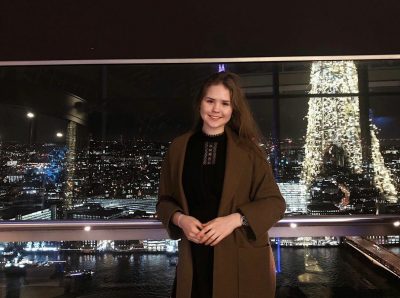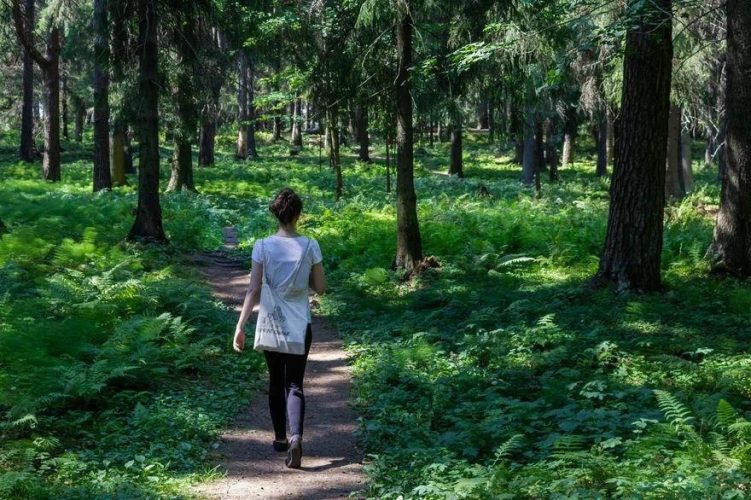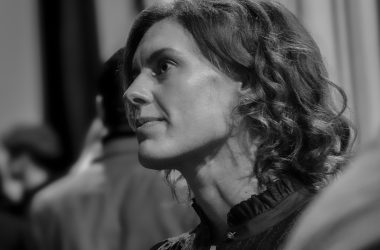With roots in Soviet Union, International Women’s Day has a strong history in today’s Russia. The first time Women’s Day was observed was in 1913, when a demonstration was held in the old capital of St Petersburg for Women’s Suffrage. For the 8 March celebration, we spoke to women across Russia to gain a sense of what Women’s Day means for them.
How is International Women’s Day celebrated in your region? And how do you feel about it?
Valeria, 18, Moscow: Personally in our house, this day is not celebrated like New Year’s Day, or like Easter, no, it’s simply a family affair and we give gifts to our mums, grandmas, daughters, sisters. Dad always gifted us some extravagant presents for 8th March, and it was always unexpected and heart-warming. He never said he would give us anything, and never gave clues that he would give us any presents.
I think the main symbol of this celebration are tulips. Everyone gifts tulips. There’s so many tulips, of all different sorts, and we have a tradition in church that every 8th of March, the men put some money forward for flowers to all the women, and they give us 5 tulips each- that’s our kind of church tradition. But I know that, like every second man buys a bouquet for his mother, sister, daughter, girlfriend, wife.
Karina, 21, Kazan: I feel like for Russian women March 8th is a really important holiday. It is a big tradition that every woman gets some nice wishes and flowers during that day. I remember, even at school during 8 of March, boys brought flowers to their female classmates.

Viktoria, 23, Karelia: Personally for me this is the day I have to pretend that everything is fine when they wish me real womanly happiness, gift me flowers, wish me to always stay so joyful, just as beautiful and forever young. And they sincerely believe that they wish me something good, that they wish me well. But I’ve already been on the other side of feminism. I can no longer accept phrases such as these as positive wishes.
I can’t explain to them why I find it so insulting and I don’t want to upset them either, that’s why I smile, that’s why I accept the stupidest gifts like flowers. Its meaning in Russia is completely distorted, deformed – of course by men, by the patriarchy, and by women who sincerely believe that the fact these men are right and at the top with power.
Is there a difference in how women are treated on the 8th of March in comparison to other days of the year?
Viktoria: Here is an example from everyday life – not on March 8th. We’ll sit at the table. Then when everyone gets up to leave, it turns out that some men don’t take their plates, and some women ask them to clear up the plates after themselves, and the man says “Today isn’t March 8th”. This is the clearest reflection of what a woman is in Russian society today.
Valeria: This question is very interesting. The difference in the attitude to women on the 8th of March is felt, because I even remember from my childhood, how on the 8th of March dad got up earlier, made breakfast, and it was on the 8th of March, not the 9th, not the 10th. I also try to do something nice for my mum on the 8th of March. I think that already there is a difference in treatment of women. But I think a lot of people are like that, like, any normal day, men don’t make breakfast.
Karina: It feels like some special day for women. And if you don’t congratulate them or get them flowers they will probably be upset.
The UN has called the theme for this 8 March as ‘Gender Equality Today for a Sustainable Tomorrow’. How do you feel about that? Do you think there is a connection between gender equality and environmental consciousness?
Valeria: [The fact that] the UN has called this the main theme of 8th March this year is great, because of course problems with the environment are growing, and gender equality in any way means the unity of humanity. And I think it’s great that humanity in solidarity, with all strength, can with the two sexes [working together] reach some kind of consensus on this question and start to think of resolutions to ecological issues together.

I find it hard to find some kind of link between climate issues and gender inequality because I think that ecological problems and their augmentations don’t depend individually on men, or individually on women – it depends on humanity as a wholeKarina: I am not sure if there is an actual connection, but I feel like more girls might be into ecology and stuff than boys as since the young age girls are taught to be very caring, pay attention to little things.
Viktoria: Explicitly speaking, we all don’t give a shit about the environment problem at the moment. We, as the biggest country in the world, have to care about the environment the most, and invest in the development of environmental consciousness, but we do not do that, we don’t have time for that. We don’t have time for developing the standard living for our fellow citizens. Talking about ecology is the next level of normal needs in a civilised society. We do not observe the effects, we don’t pay any attention to it. But I’d like us to pay attention, of course.
What effects of climate change can you see in your region?
Valeria: Well, [my region is] Moscow, which is quite a central area of Russia. Actually, in such a short time, its difficult to notice any global changes but maybe the most brightest that I saw is of course global warming, because I remember in my childhood the winters were VERY snowy, there were frosts, temperature below -30 degrees, but now there it hasn’t been like that for a while. Of course, yes, snow does fall but it doesn’t settle – it doesn’t fall quite so early [in the year] as before, and doesn’t stay for long up till spring [as before]. So closer to march everything begins to melt, by the middle of march everything is almost gone. I don’t know if I can count that as a change which I have really noticed, but it’s probably the only one.
Viktoria: I wanted to say that Karelia is lucky to be located between Finland and Saint-Petersburg, because here they are still trying to create the appearance of a civilisation, in the south everything is much worse and I can’t speak for them.Most of the national features from the republic [of Karelia] here are erased, the Karelian language has almost disappeared from use, it’s almost dead. Customs and traditions, well, not customs, more this Karelian culture, is fading away.
Karina: When I was a child I remember there was lots of snow during the winter. Nowadays, it is much less. Also summers can be hotter or incredibly colder sometimes.What difference would you like to see in your society in terms of gender equality and issues of environmental protection?Valeria: In terms of gender equality, I would not like to see any changes because I don’t feel that in Russia there’s anything particular that infringes upon my rights as a woman. Of course, I know, I’m observing the society at large and I know there are families in which there’s domestic abuse against women, for example, all sorts of different situations, different problems, but personally I can’t make the decision on how to deal with that and I can’t accurately answer the question how I would like to change it, and change it in such a way that it would satisfy everybody, and help everybody in their individual situations. Because in Russia there are many regions where for example there are Muslim regions – and how would you change those traditions, those rights? I don’t think there’s a way.
Viktoria: One day here will be a beautiful Russia of the future, with new contributions, new ideas, new people, good people – in whose consciousness will there be space to be concerned with the problems of climate change and equality. People who will work on this, bring all these wonderful ideas to life. Karina: I believe nowadays Russia gets more involved in ecological problems. I’ve seen some eco packaging in the shops, electric cars are starting to show on the streets.
Karina: I believe nowadays Russia gets more involved in ecological problems. I’ve seen some eco packaging in the shops, electric cars are starting to show on the streets.








